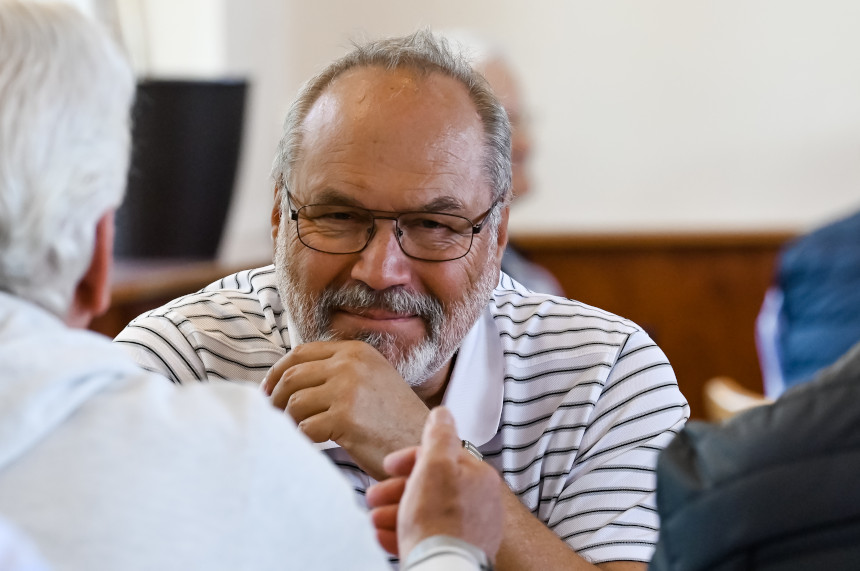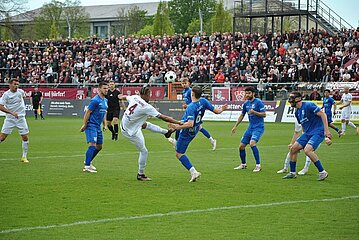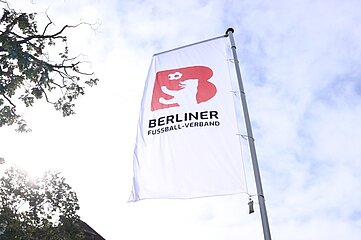Joachim Gaertner was appointed chairman of the BFV match committee in 2016. Initially appointed to the position on a temporary basis, he was given long-term trust shortly afterwards at the 2017 Association Congress, which he has since repaid with a lot of work and dedication for amateur soccer in Berlin. In this interview, Joachim Gaertner talks about his association activities, his passion for soccer and his candidacy at the upcoming Association Day.
Hello Achim, you have been a member of the BFV presidium for match operations since 2016 and therefore Chairman of the Match Committee. What is your day-to-day life like in this role?
Professionally, I am already retired and can therefore focus on my family and soccer - although my wife would probably see the order differently, because there are quite a few weeks in which I devote 30 or more hours to soccer. This involves meetings, attending matches, maintaining contact with the clubs and, above all, phone calls with club representatives who contact me with their questions.
After almost nine years in this position, you are running for a further four years at the upcoming Association Congress. What do you find most exciting about your job?
The many contacts with young people keep you young and the good connections with those responsible at the clubs, whether it's the board, coaches or support staff, are important and continue to inspire me. Above all, it was the cooperation within the current executive committee that convinced me to run again. If the clubs continue to place their trust in me in November, I am prepared to stay on for another four years.
One only has to spend a few minutes with you to realize that you practically live for soccer. How did your enthusiasm start and why did soccer never let go of you?
In 1974 for the home World Cup, our men's national team sang the hit "Football is our life". This slogan became second nature to me and, alongside my job and family, soccer was and is my life. I've been playing soccer since 1960 with Viktoria 89, Blau Weiß 90 and the former TSV Helgoland, so always in Mariendorf. In 1977, TSV Helgoland was looking for a coach for the B-juniors. I couldn't say no. I was later elected third chairman, then vice chairman and finally first chairman of the club in 1990. I held this position for 20 years until I moved to the association in 2012. As I often criticized the match committee during my time at the club, I said to myself, 'Then try to do better! So I initially became the head of the district league C. Since 2016, I've been chairman of the match committee. It's a job that only works with good colleagues who you can rely on blindly. And I have them, thank goodness.
What do you particularly like about amateur soccer in Berlin?
What I like best is that the clubs look after the people in this city and give children a sporting and social outlet. That's particularly important in Berlin these days. However, in order to further develop togetherness and cohesion, it is essential that even more clubs manage to think outside the box instead of just looking at the interests of their own club.
Volunteering is currently in great need of new blood in many areas. What is the situation in the BFV match committee?
It would be great if more young soccer enthusiasts could get excited about the association and the match committee in particular and bring new blood into our structures. A few female colleagues would also make the committee much more diverse.
Every summer, the match committee also plays a key role in organizing and staging the state cup finals for seniors and men. To what extent can these events be seen as your major highlights of the year?
The organization of the cup finals in the defendo cup and the finals of the 2nd, lower and 7s men's teams in the COSY-WASCH national cup is always very labour-intensive. But when you see the players enjoying their big day, it makes you happy all round. The spectator numbers in recent years speak for themselves and they are increasing year on year. However, none of this would be possible without reliable partners such as the Steglitz-Zehlendorf and Tempelhof-Schöneberg sports authorities and the excellent caterers we have in the Rotter-Casino at the Lichterfelde stadium and BSC Kickers 1900, the home club at the Monumentenstraße sports ground.
And finally: What do you wish for the future of soccer in Berlin?
I would like to see more fairness and mutual consideration on the pitches and in our dealings with each other.
Thank you for the interview, Achim!








